
Since my latest post about BitCoin went viral it also got published on Quartz, The Memo and other various magazines.
Some people also asked me to keep writing about this and give them updates about my decision to ditch banks for BitCoin, so here I am :)
Unfortunately I’m still unable to fully avoid banks as I’m moving to another apartment and I need some money in my account, so at least for this month I had to get my wage sent to my main bank account, but within the next 1-2 months I’ll be able to move all of my assets to BTC.
In the meantime, here’re some clarifications about my previous post and some more insights/updates.
My Current Setup
After I tried different services I’ve finally decided my final setup, while this is not necessarly the best setup to use, chances are it’s definitely the most secure right now.
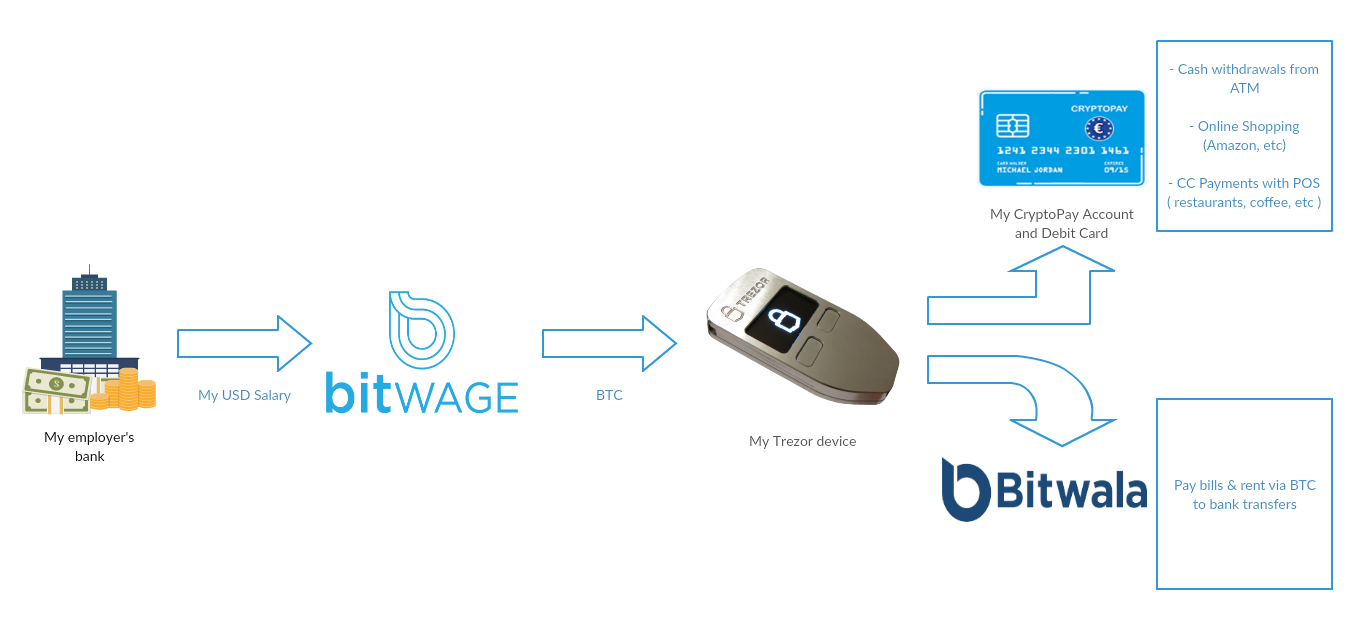
As you can see, I configured my BitWage account to receive the monthly paychecks from my employer ( I gave my employer the bank coordinates that BitWage provided me, he didn’t have to start using bitwage or any other platform rather than his usual banking system ) which are automatically converted to BTC and eventually sent directly to my Trezor hardware wallet.
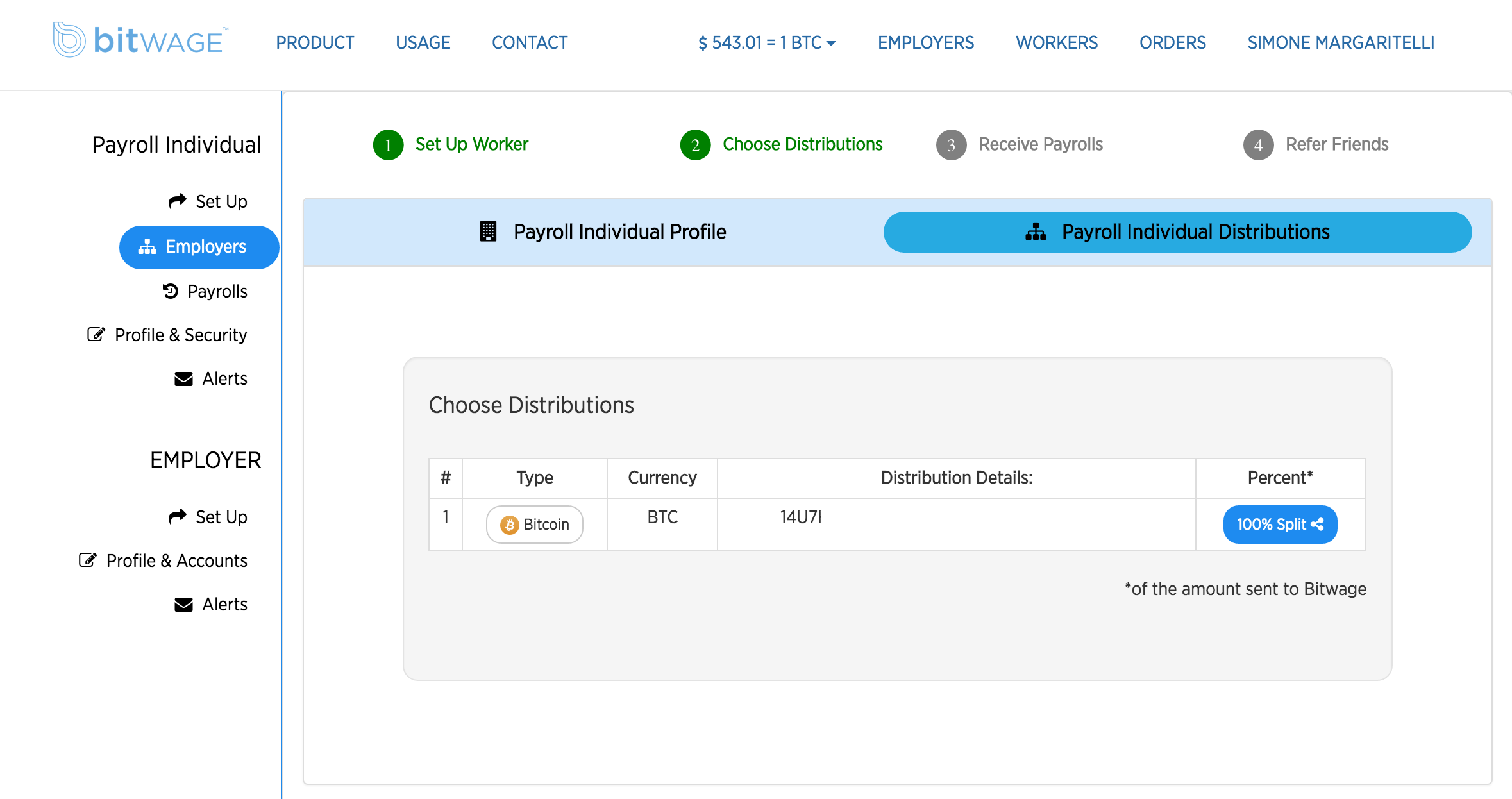
Once I have the BTC safely stored on my wallet, I move the quantity I need to spend (on a daily basis) on my CryptoPay account and use the VISA debit card they sent me. During this month I was able to use the VISA to get some cash from a nearby ATM ( 99% of the world ATMs are enabled to use debit cards ), pay some restaurants, coffee, my Netflix subscription and so forth.

I also had the chance to buy Amazon gift cards directly in BTC using GiftOff.com, it was fast, easy and secure :)
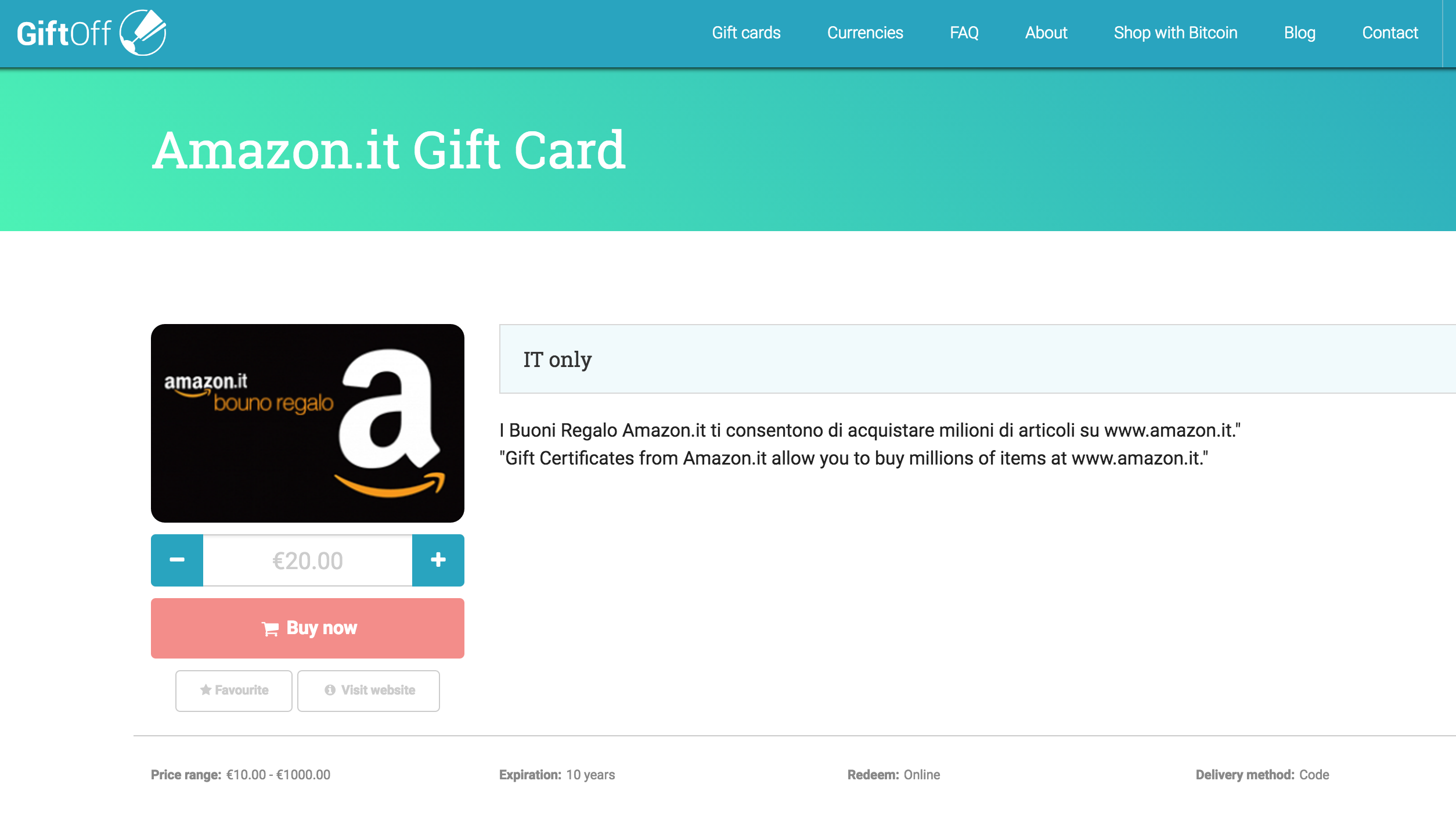
From time to time I might need to do bank transfers myself in order to pay bills and my rent, for such purpose I’m using Bitwala which has a very nice UI and it’s definitely easy to use, they will “transform” your BTC into either USD or EUR and perform a bank transfer for you.
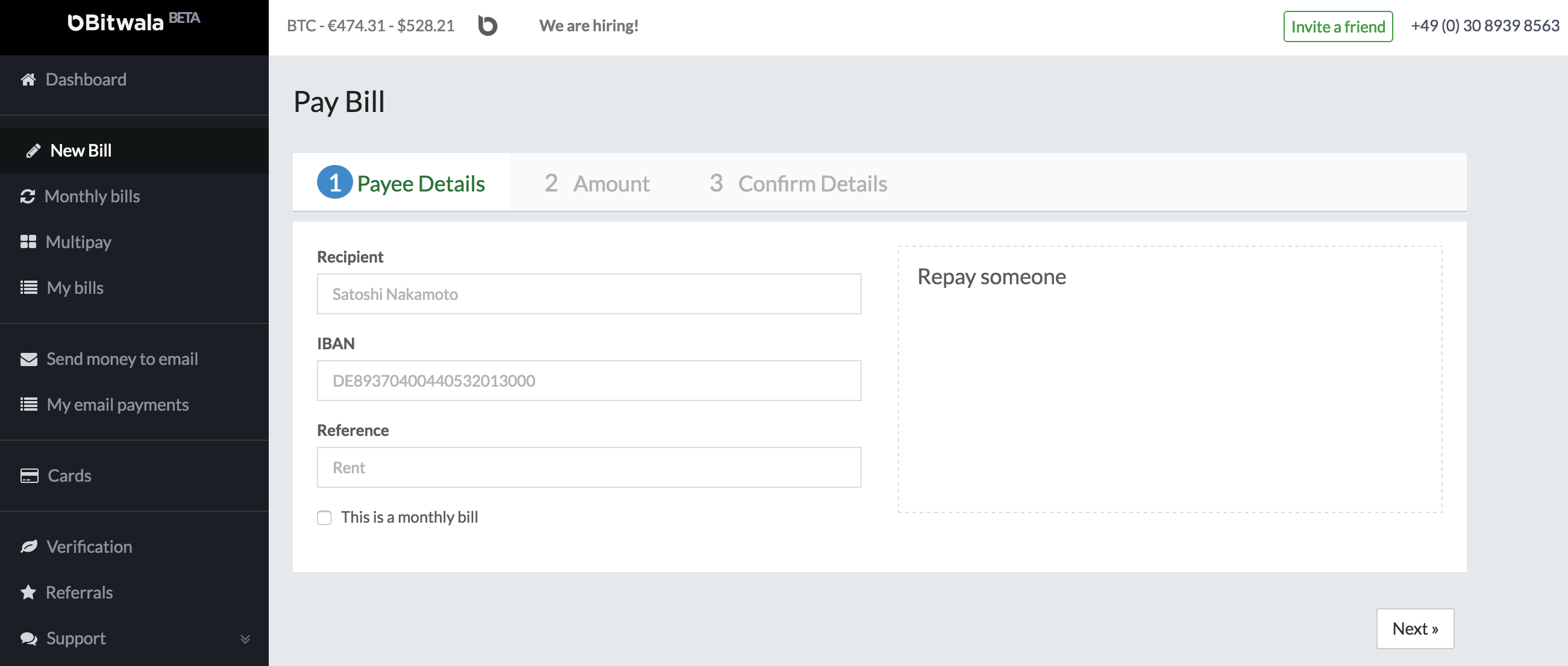
Security
I know I already talked about these points, but security is vital, if you want to have all (or most) of your assets stored as BTC, you have to use the most secure tools and policies you can, otherwise you might lose everything (hackers, malwares, no backups, you name it).
- Never store all of your BTC online or on any wallet which is not a Trezor, only move the minimum amount you need every time.
- Use a hardware wallet such as the Trezor.
- Enable 2FA ( 2 Factory Authentication ) whenever you can.
- Backup the recovery words of your hardware wallet in a safe, offline and possibly physical (online is not an option :D) place.
Managing Price Volatility
One thing I’ve been asked to clarify is how to manage price volatility, but what we exactly mean with “price volatility” anyway?
Long story short, when you buy bit coins ( either converting your salary or actively buying them on some exchange ), there’s a specific price which is determined by the market, let’s say you just bought X bit coins which are worth 1000$ (the price you paid for them).
That price might and will change in time, so let’s say that after a week the price decreased and your X bit coins are now worth 900$ … you just lost 100$.
The opposite might also happen of course, which would make you “earn” something if the price increases instead.
If you have bills to pay, you can’t afford this volatility … what if you have 1000$ of bills to pay but the value of the BTC you have just dropped down to 900$ ?
Keep in mind that having all your money in BTC is mostly a long term investment, but there’re a few ways to ensure that small amounts of your belongings do not change their value so fast.
For instance, if you know you have to pay 1000$ worth of bills, you might want to move all of them to your EUR/USD account on CryptoPay ( or CoinBase or some exchange ) and keep them there until you spend them.
This way they are “frozen” as a fiat currency and they won’t lose any value.
There’re also services such as UpHold that allow you to do that.
Tools
In addition to the services that I mentioned, there’re a few other tools I use almost daily.
Mycelium ( Android App )
If I need to pay for something while I’m not at home, I use the Mycelium wallet since it’s the only one which correctly interacts with my Trezor using an OTG cable, I do not store my BTC on my smartphone, I just use Mycelium as an interface to the Trezor.
Bitcoinity ( Price Graphs )
I constantly keep an eye on the BTC/EUR and BTC/USD prices, so I use BitCoinity in order to track different markets/exchanges.
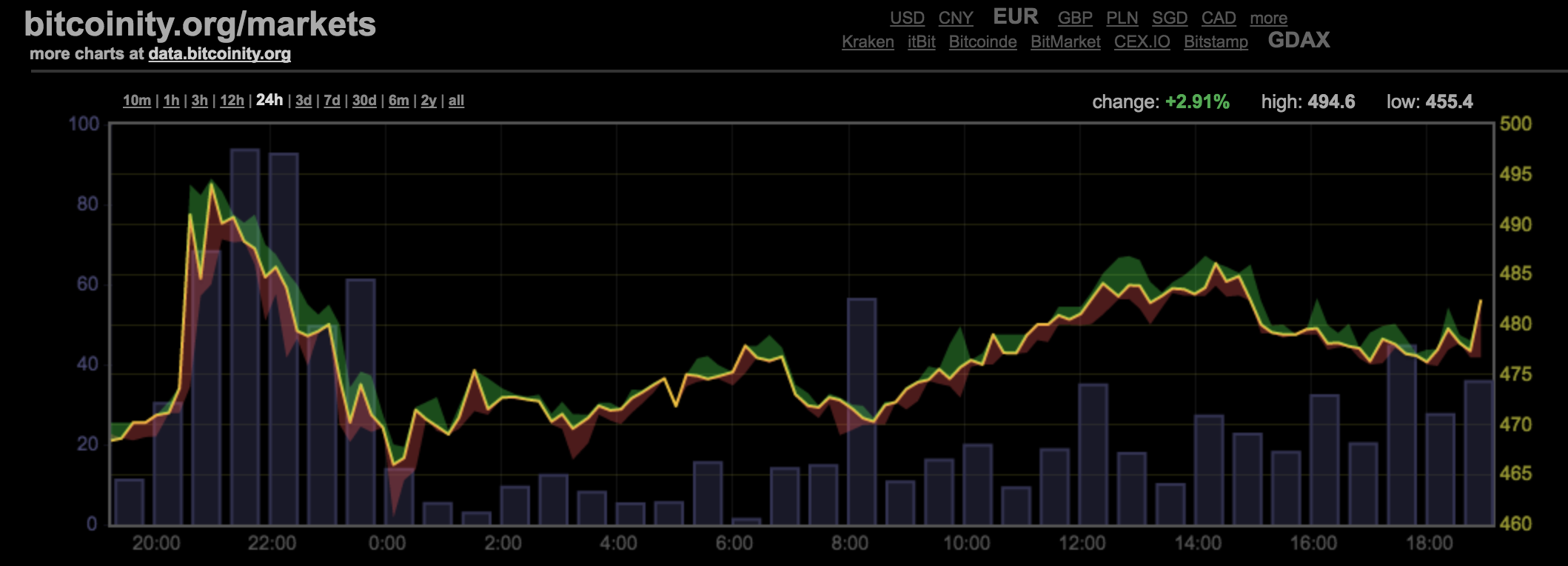
/r/bitcoin ( Reddit for News and Info about BitCoin )
/r/bitcoin is definitely my preferred way of getting news and various information about what’s happening in the BitCoin world … if I see a significant price increase in some BTC market, Reddit is the first place I go searching for news, comments and suggestions.

Questions?
This is all I’ve got for now, if you have questions or suggestions please feel free to leave a comment and I’ll try to give you an answer ( or integrate your suggestion ) in the next episode :)
If you have some spare BTC and wanna offer me a beer, this is my bitcoin account 3Gef69VY8HdhsPghdbipMrepMCKHWukXd3 :)

